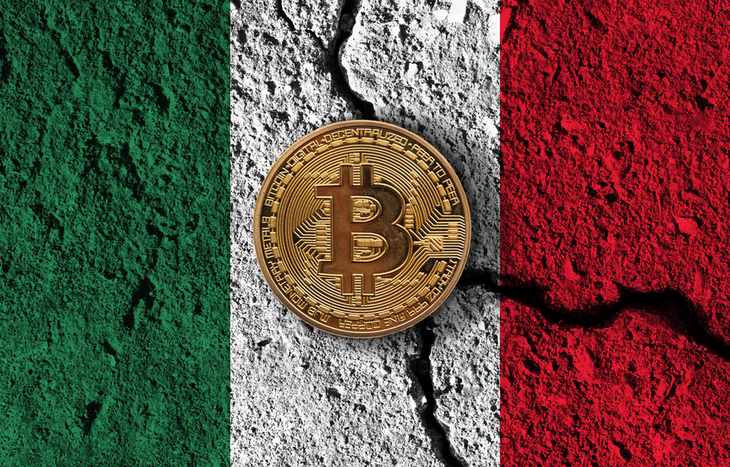The Mexico Crypto Ban Remains for the Country’s Financial Institutions
Some folks anticipated a domino effect from the decision out of El Salvador. When the country announced it would make Bitcoin legal tender in the country, many thought other Latin American countries would soon follow. And while it’s still possible, the Mexico crypto ban remains in effect… at least for now. But more specifically, this is in regards to them being used as tools by financial institutions. Average citizens in the country are still allowed to invest in and trade most cryptocurrencies.

Several Latin American countries sent signals that they may follow El Salvador’s lead. Among the most prominent were Brazil, Paraguay and Panama. There was also a lot of speculation churning around that Mexico was considering it as well. But at this point, we can take at least half of those countries off the list.
Shortly after El Salvador’s move, one of the largest entertainment groups in Paraguay announced it would be accepting several cryptos as a form of payment. Bitcoin, Ethereum and Shiba Inu among them. This would effectively make some forms of crypto legal tender at Grupo Cinco’s 24 nightclubs, restaurants and bars. The move was seen as a ringing endorsement for Paraguayan lawmaker Carlos Rejala’s attempt to make the country more crypto-friendly.
This is Paraguay 🇵🇾 July we legislate! #Bitcoin https://t.co/4e4wH7uDrl
— Carlitos Rejala 🙏🇵🇾🙌 (@carlitosrejala) June 17, 2021
However, the lawmaker’s moves turned out to not be an attempt to make Bitcoin legal tender. His plans are more focused on the regulation of crypto. He has since clarified, telling Reuters, “It is a bill of digital assets and it differs from that of El Salvador because they are taking it as legal currency and in Paraguay it will be impossible to do something like that.”
And now that the minister of finance has spoken, it seems equally unlikely the Mexico crypto laws will loosen any time soon.
Why the Mexico Crypto Ban Will Remain Intact
Grupo Cinco’s announcement to allow certain cryptos as payment triggered optimism around greater moves in Paraguay. In much the same way a major player was wielding his power in Mexico.
Mexican billionaire Ricardo Salinas Pliego was trying to make some big moves in his home country. The owner of Groupo Salinas – which has interests in the media, financial services and the retail sector – was pushing to allow Banco Azteca to be the first bank in Mexico to allow cryptocurrency. Unsurprisingly, Salinas is a major proponent of crypto – especially Bitcoin. And he just so happens to be the chairman of the bank’s parent company. So, the odds looked decent that Bitcoin could get wider support in Mexico.
But alas, it wasn’t to be. Less than a day after the announcement from Salinas, Mexican officials shot it down.
Mexico’s Finance Minister Arturo Herrerra said that cryptocurrencies are neither legal tender assets or treated as currency under current regulations. He maintained that the ban of financial institutions using crypto in such a way would remain. And noted that those bans would not be lifted any time soon.
For the fourth time in seven years the Central Bank of Mexico, the finance secretary and the National Banking and Securities Commission issued a statement about the risk of crypto… Whether as a store of value, a form of exchange or a general investment. And within that statement there was a unified reiteration that financial institutions are not allowed to deal in crypto or other “virtual assets.” Those that do will be will be found in violation of regulations and should expect sanctions to be meted out.
The Bottom Line on the Mexico Crypto Ban
As far as the general public goes, crypto is A-OK in Mexico. Folks can buy, sell and trade them as they would like… Even if the Central Bank, finance secretary and Securities Commission aren’t too keen on them.
The disappointing part of all of this is that the clamp down on financial institutions will limit crypto adoption. Wider adoption of crypto could be a big boon to Mexico’s GDP. In 2019, remittances equaled 2.9% of Mexico’s GDP. During the pandemic, money sent back home to friends and family in Mexico surged more than 10%. In total, roughly $40 billion was sent to Mexican residents from out of the country.
The problem with this is the antiquated remittance process is slow. It also eats up around 7% of the total amount sent. That means that on top of taking days to get to the final recipient, fees snatched nearly $3 billion out of the hands of Mexican residents. This could easily be rectified if the Mexico crypto ban was lifted from financial institutions. It would immediately lead to increased adoption and more money in the hands of Mexican citizens. But for now, that issue will have to wait.
If you’d like to keep up with all the news moving the crypto markets, we suggest signing up for the Manward Financial Digest e-letter. In it, crypto expert Andy Snyder helps guide readers towards investment opportunities of all sorts… Not the least of which take place in the crypto markets. To sign up, just enter your email address in the box below.
About Matthew Makowski
Matthew Makowski is a senior research analyst and writer at Investment U. He has been studying and writing about the markets for 20 years. Equally comfortable identifying value stocks as he is discounts in the crypto markets, Matthew began mining Bitcoin in 2011 and has since honed his focus on the cryptocurrency markets as a whole. He is a graduate of Rutgers University and lives in Colorado with his dogs Dorito and Pretzel.





